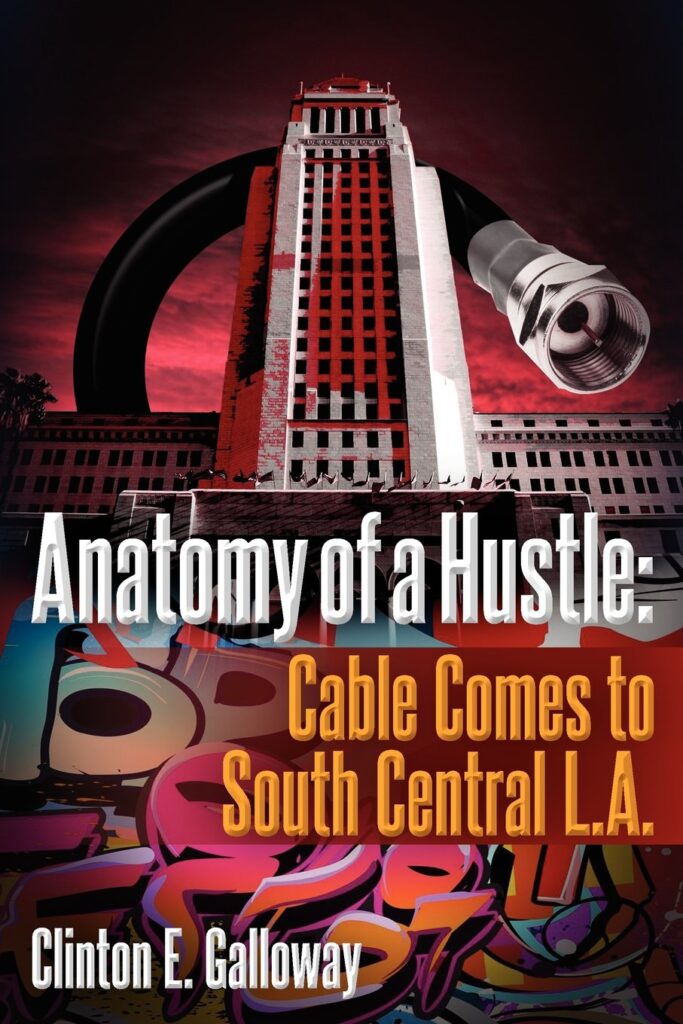The Year Was 1979
Carl and Clinton Galloway were young, black professionals, a doctor and an accountant, who realized that the power of cable television could transform lives. During the next ten years, the brothers’ efforts to improve South Central Los Angeles involved such people as America’s most famous black politician and the world’s richest man.
Anatomy of a Hustle is the untold account of two brothers who tried to make a difference in Los Angeles’ poorest . From the back rooms of City Hall to the Supreme Court of the United States, here is the story of the Galloway boys’ struggle to bring the latest technology to the Los Angeles citizens who needed it most. Along the way they learn that there are no angels in city hall… unless you own a politician.

Galloway’s account is palpably bitter and one-sided, but it shines a powerful light on high-level malfeasance. A stinging indictment of urban politics-as-usual.
Kirkus Reviews

About the Author
Clinton Galloway was born in Birmingham, Alabama, but soon after he and his family moved to New York City. He attended college at Northern Arizona University on a baseball scholarship. In the late 1970s, after getting his CPA license, he moved from a large international accounting firm in San Francisco to a Beverly Hills investment bank.
Seeing the violence, poverty, and lack of education that were prevalent in South Central Los Angeles made Clinton and his brother, Carl, realize that they should try to make a difference for the area’s residents.
In the early 1980s cable television could be that difference. Cable would create jobs in L.A.’s poorest community and – with the right programming – could create better futures for its challenged residents. Clinton and Carl would devote their lives to making things better.
After more than a decade of work, a trip to the U.S. Supreme Court, and several small victories along the way, Clinton and his brother were unsuccessful. To make matters worse, in 1993, the U.S. Congress passed a law stating that regardless of the civil rights violations that had occurred during the cable television franchising – yes, there were many – there would be no damages allowed against any city in the United States. This new law virtually terminated Clinton and Carl’s case and ended their cable TV journey. Corporations had shown their immense power over our government.
It was then that Clinton first considered writing a book chronicling their journey, but years of health issues in the family followed. The book was put on the back burner.
Eventually, in Carl’s final days (he died from leukemia in 2008), he convinced Clinton to move ahead with the book. Clinton shares their story in Anatomy of a Hustle: Cable Comes to South Central L.A. (Oct 2012).
I would like to recommend the book Anatomy of a Hustle to anyone who’s interested in practical aspects of the governance of the city of Los Angeles... Things haven’t changed much over there.
Michael Kohlhaas
Contact Clinton
The city of Los Angeles has spent roughly $1 million so far to keep some local entrepreneurs from competing against a cable-TV monopoly controlled out of Boston.
The Wall Street Journal Marketplace